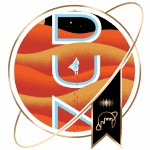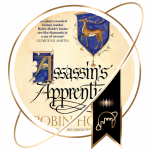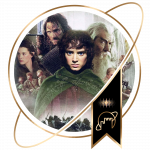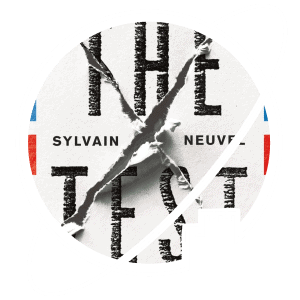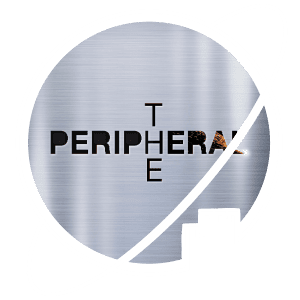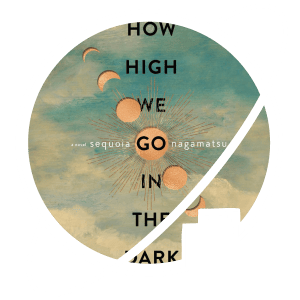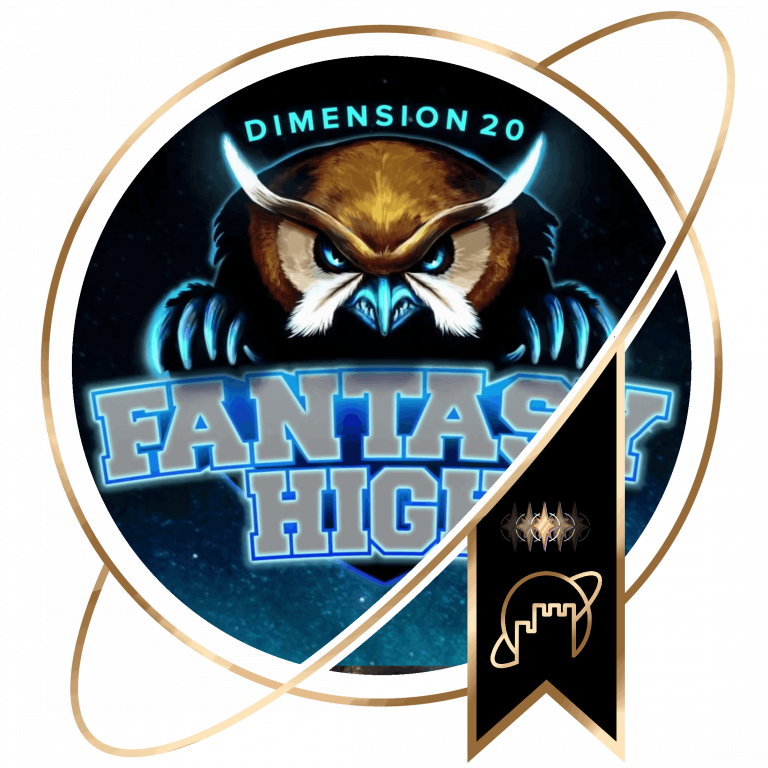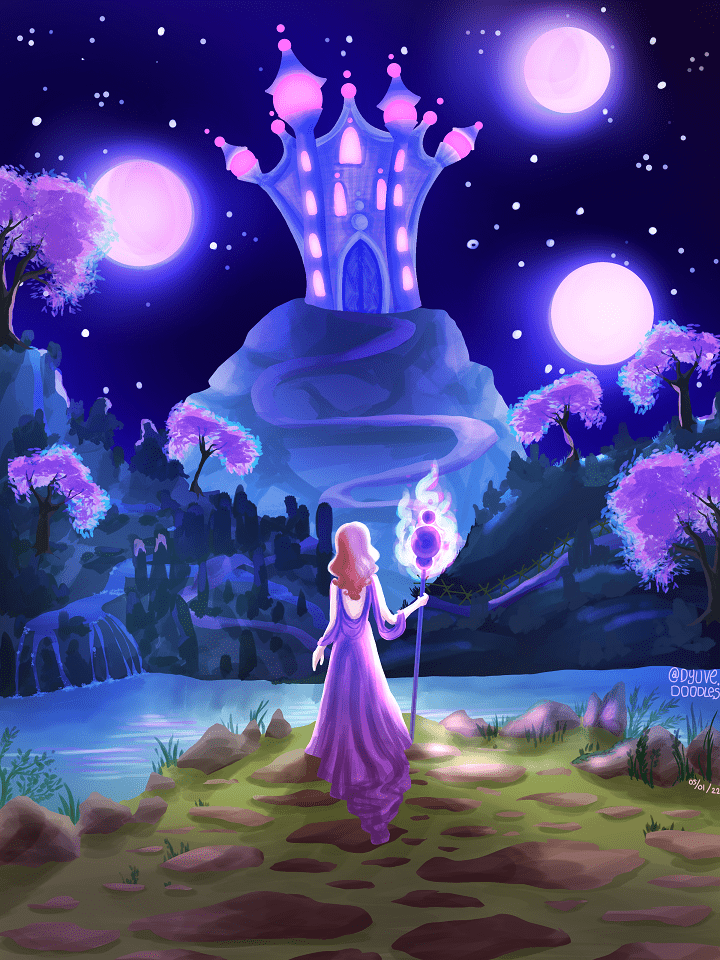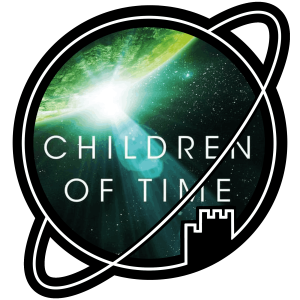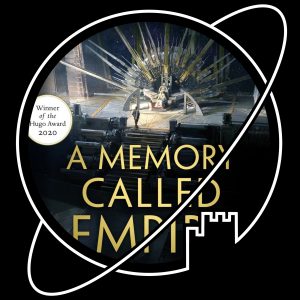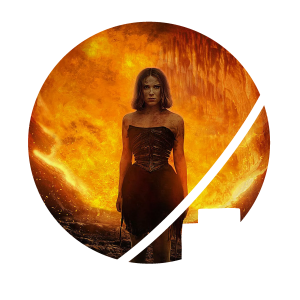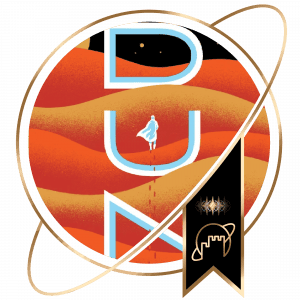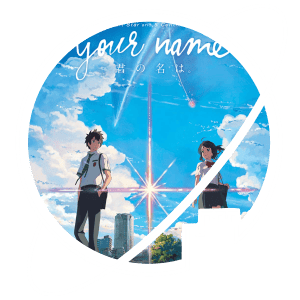Welcome to the Escape Velocity Collection!
We are an opinionated group of friends reviewing all sorts of fantasy and science fiction media. Don’t forget to get to know the curators and visit our curated Collection, where we discuss the stories that never cease to transport us to another world.
Will you escape with us?
LATEST POSTS:
Time to get to know the curators from the Escape Velocity Collection! How? By asking them the questions that really matter! Let’s see what our curators have to say…
This week’s question is:
Do you prefer Fantasy or Sci-Fi?
I choose you, sci-fi! Although I do not see myself as someone particulary fascinated by space or technology, I love the societal stories good sci-fi tells. In my opinion, the best sci-fi warns us for the excesses of technology or show another way of living together, new societal hierarchies for better and for worse. I guess I want my media to make me think.
Fantasy on the other hand, I associate more with escapism. And while I want to walk a mile in someone else’s moccasins, I ultimately want to come out a better, more mindful person myself. Then again, I do love playing D&D, watching LotR and recently read the first trilogy of Robin Hobb with great enthusiasm. So, maybe, there is still hope for me…
I can appreciate both. The most important thing for me is that the world isn’t needlessly complicated (Dune, I’m talking about you), and the plot is about the characters more than about stinky politics (stupid Dune). I love magical elements, so if I had to choose I would gravitate towards fantasy. Fairytales are the stories I most easily get lost in, in a good way. But I do enjoy the tech-elements that come with a sci-fi story (long way to a small angry planet).
I love both! It’s really tough to pick one or the other. I think they scratch different itches and I wouldn’t want to give up either. That’s not what you’re here for though.
If I look back over the past years, I have read more fantasy than sci-fi. I think Fantasy books have a tendency to be more comfortable, easier to read, more exciting, a bit less thought-provoking. I like reading science fiction because as a genre it is constructed to encourage you to reflect on the present. It’s more inherently political. But that also means that reading and properly considering a sci-fi book takes a bit more out of you. Because I am so busy with my job, I tend to want to relax a bit more in my free time – and so I often feel more inclined towards fantasy.
The above dichotomy is less evident outside of books and maybe tv shows, so in games or films I really don’t have a preference.
I love sci-fi, but my heart will always belong to fantasy.
For me it’s mostly an aesthetic thing. I love historical fashion, hairstyles and design. I love the idea of nature, even if I rarely go out in it because it’s kinda dirty and bugs scare me. I’m not much of a minimalist, so the fact that most science fiction styles tend to be quite minimal kind of puts me off.
Still, I do love science fiction as a genre. I love space, and I love the idea that science fiction shows us what our society could look like in the future. I just don’t love the type of future we are often shown.
I am – and probably always will be – a true stan for fantasy.
The imagination and (possible) diversity of the fantasy genre speaks to me in a way that I cannot quite put into words. Where most people tend to write it off as a non-intellectual genre, I find that it invites me to look at things in unique and different ways. At the same time, the escapist elements of fantasy remain comfortable enough for me that I don’t mind pondering more difficult issues. Also, I like dragons and forests.
As for sci-fi, as some Dutch twitch-streamers wisely summarized: I’m not much of a spacem’n. Space, aliens, and smooth metal spaceships and such are not necessarily my thing. This leaves me with sci-fi that stays more true to our current world barring a few differences, and although the scenarios and questions in these stories often intrigue me, the similarity with our own life prevents me from truly enjoying them in a escapist way.
In general, I would rather read a story that takes place in a forest than a story that is set on a spaceship. Even though a large part of fantasy and sci-fi stories might not take place in either of those two settings, I still find it helpful to explain why I am often drawn more to fantasy than to sci-fi: I really enjoy the mystical atmosphere and the focus on natural elements that many fantasy worlds offer. While I appreciate sci-fi stories for their originality and thought-provoking questions, their settings are usually less comfortable and therefore less effective as a means of escapism, to me at least.
That’s it: another soul-searching question answered!
Still curious? Visit each curator’s page to see what they’ve recently been up to!
Check out our reviews of the media recommended in this post here::
- Book written by Ted Chiang
- Published 7 May 2019
- Short story collection
A merchant in ancient Baghdad discovers a time portal which allows him to revisit his past mistakes. A former zookeeper takes a job raising digital lifeforms. A new technology enables people to communicate with alternate versions of themselves, and to see how their life would have turned out if they had made different choices. The nine short stories in this collection focus on some of life’s biggest questions: questions about free will, the nature of consciousness and humanity’s place in the universe.


Exhalation is a collection of novellas and short stories. I’m rating and reviewing the book as whole, but I’ll include a couple of lines on the separate stories below.
Exhalation is one of these books I’ve been vaguely aware of for years, but I didn’t get round to for a long time for no other reason than that there was always something else just above it on the list. It’s a real pity, because Exhalation is an amazing collection of short stories with not a single miss in it.
Chiang writes very traditional science fiction in the sense that all of his stories are based on an idea. Whether the idea is a scientific discovery, a technology or magic, Chiang then explores the impact of that idea on society. That doesn’t mean his characters are poorly written, but the stories are not designed around the characters like most fiction is.
Most of the stories in Exhalation focus on pretty heavy topics such as fate, free will or the literal meaning of life. Chiang manages to elegantly weave these questions into everyday narratives that keep the big topics relatable. I think it is a sign of his mastery that Chiang is able to write so thought-provokingly without ever needing to change much about our society to make it work.
Both bite-size and literary, the stories in Exhalation have been showered with awards and nominations, and I think they deserve it. Below, I’ve included a separate rating for each of the stories in the collection.
—-
The Merchant and the Alchemist’s Gate: 5/5. Hugo- and Nebula Award winning novelette (apparently, a ‘novellette’ is a thing). Amazing 1001-nights inspired fantasy story on fatalism, time travel and the nature of loss.
Exhalation: 3.5/5. Hugo Award winning short story on entropy and the ultimate finality of life in the universe. very fatalist, strangely soothing.
What’s Expected of Us: 4/5. Cute bite-size short story on the nature of free will.
The Lifecycle of Software Objects: 5/5. Hugo- and Locus Award winning novella on the nature of our relationship with AI. The interesting twist is that the AI is not indistinguishable from humans, but rather very clearly just a little below that threshold. That makes the questions on AI rights and the place AI takes in the main characters’ lives feel more real somehow.
Dacey’s Patent Automatic Nanny: 3.5/5. Novelette on a steampunk nanny-robot that reminded me a lot of the type of technology described in The Difference Engine.
The Truth of Fact, the Truth of Feeling: 4/5. A short story on the benefits and dangers of recording memories. A very similar idea to the (earlier) Black Mirror episode S1E3 “The Entire History of You”, though somewhat less dramatic in presentation. It is interspersed with a story on the impact of writing brought to Nigeria by European missionaries.
The Great Silence: 3/5. A short story intended to be part of an art installation – still works in the book, but I would rank it last (which is no shame in this list).
Omphalos: 4.5/5. Fascinating, Locus Award-winning story based on the premise that the world was indeed created by a god in the (relatively) recent past, and it is possible to find scientific evidence of that creation. It explores the idea of meaning in a world where a god might exist, but you might not be sure he is watching.
Anxiety is the Dizziness of Freedom: 5/5. I’m not sure on the name of this novella, but don’t let that put you off. It explores the idea of free will and choices if the existence of parallel universes is confirmed and you can have a peek in them every now and them. It reminded me of The Peripheral (the novel) at times.

I finally got round to reading this collection, which has been sitting patiently on my shelf since I bought it in October. I generally enjoyed it: the stories were interesting and definitely thought-provoking in the best sense. I especially enjoyed the story ‘Exhalation’, which offers a strange but unique meditation on the scientific concept of entropy.
Many of the stories in the collection offer a Black Mirror-like view on the impact that new technologies could have on the human experience, although I do have to add that Chiang’s stories are far less dark than those of Black Mirror. Whether that is a good or a bad thing you will have to decide for yourself. Personally, I especially appreciated how well Chiang was able to translate the impact of these technologies to the lived experiences of his characters. He adds many nuanced but realistic details about the unexpected ways in which people’s daily life could be affected.
As is usually the case with short story collections, not every story worked equally well for me. But on the whole I think it is a very strong book with a number of truly interesting takes on some of the mysteries of our existence.
Tagged:
January 30, 2022

Collected on: January 30, 2022
- Dungeons and Dragons webseries by Dimension 20 for Dropout TV
- Released in 2018
- Starring Brennan Lee Mulligan, Emily Axford, Zac Oyama, Siobhan Thompson, Lou Wilson, Ally Beardsley, Brian Murphy
In this D&D web series, we follow a group of kids during their first year at Agueforth Adventuring Academy, a high school where kids learn to be classic D&D adventurers.
Fig has recently found out her elf father is not her real father, and she’s going through a rebellious phase. Gorgug is a gentle half-orc barbarian whose adoptive parents are gnomes. Adaine comes from a wealthy elven family, and is only going to Agueforth because she had a panic attack during her entrance exam for a fancy school. Fabian is the typical high school jock, the son of a ruthless but loving pirate father and a day-drinking elven mother. Kristen comes to realise that perhaps the god she has worshipped day and night for all her life isn’t quite all he seemed. And Riz is a wanna-be detective, desperately trying to solve the disappearance of his baby-sitter.
Peter: Welcome to this in-depth, spoiler-free discussion of the online video series Fantasy High by Dimension 20, which our curator Lotte has added to the Escape Velocity Collection, a series of items that we believe represent the absolute peak of what the speculative genre has to offer.
I challenged Lotte to defend her addition to the Collection – but also to explain what this emerging genre of filming yourself while playing a tabletop role playing game is all about.
Introduction
So generally, I would start off by asking questions on when and why you enjoyed Fantasy High, but in this case I feel we need to take a step back and talk to our readers a bit about what Fantasy High actually is.
I am assuming you are all familiar with the concept of tabletop role playing games like Dungeons & Dragons, Pathfinder, Call of Cthulhu, etc: games that are a weird amalgamation of rules, storytelling, and improv theatre, often complex, that tend to take the better part of an afternoon for a single session in a campaign that might span years.
Over the past years, a genre has emerged where people film themselves playing these kinds of games. Most of that content is made by enthousiastic amateurs, but by now there is also a fair number of professional productions out there – including Fantasy High.
I’ve watched a non-neglible amount of these videos, but they never worked that well for me – though our other curators don’t all agree. Lotte, before we dive into Fantasy High, could you maybe elaborate a bit on your experience with the the type of content that we are discussing here to get some perspective?
So I started watching Critical Role a couple of years ago, on the recommendation of a friend. I started watching when they were at the early stages of their first campaign. Now I’m the kind of person who likes to have some kind of video playing in the background while I do other stuff, so I got through the episodes quite quickly. I enjoy the fact that I don’t always have to be paying complete attention. Sometimes my mind wanders, but if it seems like I missed something important, I can always rewind a bit to see what I missed.
So, the genre never really worked for me because many productions are (relatively) unfiltered, unedited gameplay. They tend to be relatively slow to get going, and while they can definitively have awesome moments, these are separated by long hours of chatter and gameplay that don’t hold my attention. Fantasy High, however is different – so let’s turn there. Lotte, how did you run into Fantasy High, and what made you fall in love with it?
I started watching Fantasy High on the recommendation of the same friend, actually. It was the very start of the pandemic, and she send me a video of Gorgug asking people if they are his dad. She also assured me that it was only 16 episodes of two hours tops. Let’s just say I had some time on my hands, so I watched it – binged it, actually – in the next couple of weeks.
Fantasy High, isn’t like most other D&D shows out there. I’ll be honest: I haven’t seen many other streams other than Critical Role and Dimension 20 (who made Fantasy High). Still, Compared to the massive time sink of Critical Role, Fantasy High felt very manageable. It’s also mostly focused on comedy, and the episodes are edited. This show – while probably incredibly fun to play for the creators – is made for the viewers.
What Makes Fantasy High Different
As I said above, the genre never clicked for me and I assumed it was just because I didn’t like to watch other people play. So when you recommended Fantasy High, I expected to only watch it for the purpose of writing this post. What blew my mind though, is how different – how much more watchable – this type of content becomes when the people that make it, are actively editing and designing it to improve viewer experience.
You’re definitely right in saying that the concept of Fantasy High was created with the viewer experience in mind. I think this is where it really differs from something like Critical Role. And I’m not saying there’s anything wrong with Critical Role! I love the show, there’s just too much for me to keep up with at this point. The difference is that the cast of CR chose to continue their home campaign, thus starting their web series as a very traditional D&D game. There’s no editing apart from the opening titles, and episodes can range from 3 to 5 hours. This is what people liked, and so they’re still doing their main campaigns this way. None of this is criticism; it really works for them and they tell some amazing stories. It does mean that it’s very hard to get into for a casual viewer, or even for someone who wants to start watching halfway through a 500-hour campaign.
Dimension 20 makes shorter campaigns, Fantasy High itself totalling at most 32 hours. Because of the editing, we don’t see the players talking about rules too much. The world building is based mostly on concepts the viewer is likely already familiar with, so there isn’t a lot of exposition that, when missed, leaves you confused about the setting.
The Setting and Style
Good point about the world building: Fantasy High is set at a high school for fantasy adventurers – think a wizard as the principle and enrolling in ‘barbarian classes’. At the same time, it’s overflowing with Grease/The Breakfast Club type Hollywood high school movies clichés – the jocks, the nerds, the popular girls, etc. It may seem like a weird mix – and it is – so why did it work so well for you?
Now I love me a weird mix. I’m not a huge fan of high school media, but I’ve seen a lot of it. Some genre’s you just can’t avoid. I do, however, love Fantasy, and I’ve seen a lot of it. That’s why it’s so fun to see something like Fantasy High doing something with the genre that I haven’t seen before. Look, I love High Fantasy, but seeing something taking the classic Fantasy tropes and turning them on their head? There’s nothing better.
Surprisingly, I also enjoyed the humour. Comedy (especially American comedy) tends not to work for me at all. However, I play tabletop RPGs, I have consumed more fantasy media than I can remember, and I have even seen a couple of high school movies. I tick all the right boxes for the parody to work. I’m not saying none of the moments are independently funny – but don’t you think that for the setting of Fantasy High to work, you should probably have some experience playing a tabletop RPG and be familiar with fantasy tropes and clichés?
I do think you need to be familiar with some of the tropes, but definitely not with everything. I feel like most people have seen The Lord of the Rings and The Hobbit. That should be enough to get you to understand the majority of the Fantasy tropes used. And like you say, even you have seen some high school movies!
I do agree that people who have played some tabletop RPG’s will probably enjoy it the most, but I definitely think it’s comparable to the books of Terry Pratchett in this respect: if you know the tropes, you’ll love it. However, if you don’t know anything about fantasy, it will still be really funny.
The Game
Another important element to discuss is the game itself. Even if Fantasy High is different in that it is sleekly edited and a lot shorter, this is still a series about people playing D&D – and it therefore has some of the same pitfalls.
You just said that you didn’t feel that experience with tabletop roleplaying games is necessary to get the story – but does that also apply to the rules? If you’ve never played a game like this, would you understand what happens when someone says ‘roll for initiative’ and everyone groans, or ‘natural twenty!’ and everyone cheers? Do you even know what a hit point or a D8 is? Isn’t half of what is going on just mumbo-jumbo?
I think it probably can be confusing at first, but I find that in Fantasy High, even the rules aren’t the most important thing about combat. The players describe their actions, so while you may not understand exactly why an action did not work, it won’t detract too much from the experience, because it’s not the why that matters – it’s what actually happens. There’s actually plenty of people who got into D&D from watching streams like Fantasy High and Critical Role.
I suppose it’s similar to how I’ve recently started watching figure skating: At first I didn’t know the skaters, and I didn’t know the rules. Now I know much more about individual skaters, but I’d still be unable to tell two jumps apart. Still, I enjoy it more, because knowing the “characters” means that I know what the stakes are for them. And at the end of the day a high number is good, a low number is bad, and when someone falls flat on their face even I know that’s not great. There’s a lot you can tell from people’s reactions to the result of a dice roll that will ensure that you don’t even need to know the specific rules.
Also, there’s a fair amount of the cast who are first time D&D players in Fantasy High! So you wouldn’t be alone in being unfamiliar with the rules.
In this show, combat is never just combat. There’s no combat for the sake of combat, it always serves a point in the story. I’ll be honest: I’m not a huge fan of combat myself. Sometimes I feel like I’d prefer to just skip it. However, in Fantasy High, it’s not just rounds and rounds of swinging swords and slinging spells back and forth. Instead of it being an hour of roleplay followed by an hour of combat, there is roleplay in the combat as well. Every scene in Fantasy High serves a purpose, which is absolutely wild if you consider that it’s basically all improv.
I should also mention that there’s some lovely set design in the show. Because it’s not a typical high-fantasy setting, I imagine it’s a lot harder to source/create set pieces for the battles. They’re always stunning, though.
Oh yes! Brennan is an amazing DM! I think tastes probably vary in terms of what people look for in a DM, but Brennan, for me, just does a lot of things really well. He’s incredibly knowledgeable about the rules, but he’s very willing to let players try (and succeed at) cool things. He’s funny but also able to handle emotional situations really well (sometimes at the same time). He’s also just amazing at improv. Like, he’s the DM so it’s clear he probably prepares a lot for the show, but nothing fazes this guy – and the players absolutely do try sometimes!
Conclusion
So we can conclude that Fantasy High is a D&D-game stream which is much more accessible than other versions of the same content – shorter, better edited, focussed on fun moments and improv comedy, with a cool cast and a great DM. I would recommend Fantasy High to anyone who has been on the fence about this kind of content – give it a shot, you might be surprised how much you like the experience. Is there anything you would like to add or specific people you think should give Fantasy High a shot?
I would recommend Fantasy High to people who like their fantasy a little bit light-hearted.
And as Peter said, if you’ve been interested in D&D and feel intimidated by a show like Critical Role, then Fantasy High is the perfect way of dipping your toes in the genre to see if it’s your kind of thing.
I’d also recommend the show to people who really like the books of Terry Pratchett and people who loved the show Galavant for it’s delightful mix of classic fantasy and modern concepts.
Hi guys, and welcome to the first update post of the new year!
Each month, one of our curators looks back at what they’ve been up to over the past weeks and what we can (hopefully) expect from them in the not-too-distant future.
This month, Lotte will take you through her experiences in the speculative genre over the past month. Curious what she’s been reading, watching and playing?
Read on!
Past month
This past month, my favourite post has to be the Journey of a Sci Fi noob. I do relate to Jop in this, as I myself tend to prefer Fantasy over Sci-Fi. It can be hard to find content that you’ll enjoy in a genre you’re unfamiliar with. I will say, though, that reading that Jop thought Mass Effect was “just fine” fully crushed my little heart.
Since a friend fixed my gaming PC a month or so ago, I’ve finally been able to spend some time drawing on my PC instead of my iPad. It’s been tricky getting used to my old drawing tablet again! It’s a tablet without a screen, something I used to be very comfortable with but feels very unfamiliar to me after almost two years of drawing on a screen. I really want to draw some fantasy environments and characters! I’m definitely trying to focus on quality over quantity this year, though, so I don’t expect to be churning out art twice a week like I did last year. still, if you’d like to follow along on my art journey, feel free to follow my art Instagram here!
Upcoming
Another advantage to having my gaming PC up and running again, is the fact that I can finally go back to the game I’ve been playing for… maybe a couple of years now? The game in question, Assassin’s Creed: Odyssey, is fully worth it, though. I’m about 100 hours in and while I know I should probably focus on finishing the main quest, I’m really enjoying exploring ancient Greece. I’ll review it when I finish it! If I ever do…
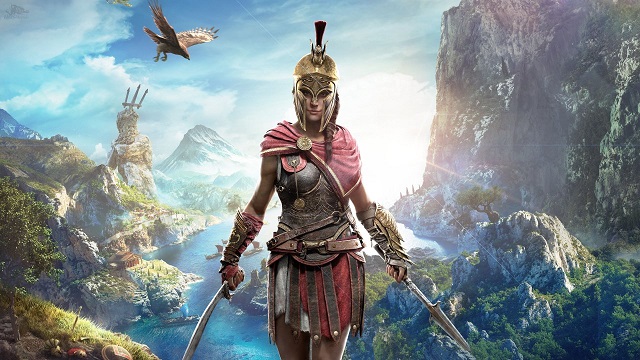
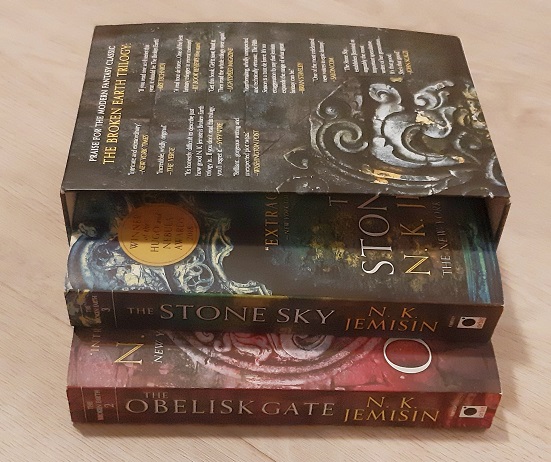
I also recently finished the Broken Earth Trilogy, by N. K. Jemisin. I really enjoyed the series, and immediately harassed Jop and Robin into reading them, too.
You’ll notice that the first book is missing from my collection. It’s currently with Jop!
Finally, fans of Dimension 20 will know that this month marked the release of Dropout’s new D&D show, a Starstruck Odyssey, which features the original Dimension 20 cast on a Sci-Fi adventure.
So far they’ve released three episodes, and it’s definitely a wild ride! You can expect a review when the season’s complete.
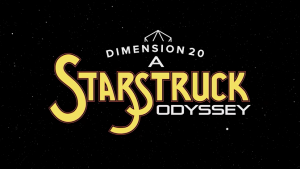
- Audio drama written by Jeffrey Cranor & Janina Matthewson
- Produced by Night Vale Presents
- Released in 2016-present
- Starring Janina Matthewson, Rima Te Wiata, Lee LeBreton, Mona Grenne, Norma Butikofer, Amiera Darwish and Leah Minto
Every season of Within the Wires tells a stand-alone story within an alternate history of the 20th century. The Great War has spun out of control and raged for decennia, reducing the whole world to rubble. After this, the survivors build a New Society while rooting out the cause of all conflict: tribalism. How? By dissembling the nuclear family…
 I love this audio drama! Each season tells a beautiful, personal story that is worth the listen on its own. But one of the reasons I really like this audio drama, is the way it is structured: every season uses a new kind of found audio. And this medium is not just a way to justify the way the story is told, it is in the core of the kind of story that is told. In addition, every season shows a completely different side of the world in which the stories are set. The stories come first, but there is a real marvel in piecing together the world behind them.
I love this audio drama! Each season tells a beautiful, personal story that is worth the listen on its own. But one of the reasons I really like this audio drama, is the way it is structured: every season uses a new kind of found audio. And this medium is not just a way to justify the way the story is told, it is in the core of the kind of story that is told. In addition, every season shows a completely different side of the world in which the stories are set. The stories come first, but there is a real marvel in piecing together the world behind them.
Every season is very different, so a sort review per season:
- Relaxation tapes, unknown date. Not the easiest to start off. It takes some time before you find the story behind the relaxation tapes and the tapes transition into more storytelling. But when it does, it is a heart-wrenching story. And the institute where it takes place is at the core of the alternate world you’re piecing together.
- Audio guides, 1971-1986. I think my favourite season. It has the most innovative way of storytelling and its story is hardest to grasp. It was wonderful to be invited to imagine all the different art pieces the audio tour touches upon. In the reflecting power of art, you see the changes of the world that the artist lives in.
- Office reels, i.e. notes to a secretary, 1953-1961. This season has a great tension build-up with something of a detective-feel to it. You feel something is off, but who is exactly playing who? Also a great sneakpeak in the bureaucracy of the New Society. A way more positive image than we have seen so far.
- Audio messages, 1993-1999. These are letters from a mother to her daughter, leading a community living in hiding from the New Society, because they chose to live with family. It shows another side of the multi-sided coin that is this world. While the mother is travelling around the world spreading the idea of her Cradle, her community grows more distant under her daughter’s leadership. Although it was interesting in the aspect of world building, this was my least favourite season. The story and acting could not hold my attention.
- Phone calls, 2008-1997. A love story in reverse, literally. It took me a while to figure this one out, but when I felt it, oh, I felt it. Sprinkled with worldbuilding on the surveyance-side of the New Society, it was another great season.
- Medical notes of an in-house nurse, 22-30 October 1973. A ghost story. Not the best season as far as the use of the type of audio is concerned and the paranormal felt a bit out of place in the world built by the previous seasons, but the end kind of made that make sense. Anyway, it was a truly and beautifully haunting story that brought the mysterious ‘Great Reckoning’ closer.
You don’t have to listen to them in order, but you do have to listen to them! So take your pick!
Tagged:
In an alternate history of the 20th century, the Great War – or, in this world, the Great Reckoning – has spun out of control and raged for decennia, reducing the whole planet to rubble. In these circumstances Miriam developed a kind of meditation that could separate people from their trauma’s: the Watercolor Quiet. In her memoires she writes how she grew up during , discovered the Watercolor Quiet, and developed it in the New Society establishing itself when the smoke cleared. The Watercolor Quiet became instrumental for the new regime as a way to separate people from their unwanted memories. Although those memories were not always trauma’s.
 This book was my most anticipated work of fiction of 2021. It is set in the universe of Within the Wires, an alternate history audio drama and one of my absolute favourites. One of the reasons I love this audio drama is the way it is structured (see my review there), and the book presents itself in the same tradition. Instead of found audio, this story is found written work: a memoir. But there is more. It is a memoir presented by a journalistic organisation who claims to have scrutinised the facts of the memoir and found them full of unfounded allegations. Yet, the organisation holds free speech above all. Therefore, it circumvented censure by the New Society government and found you, the reader, to be responsible enough to read it. ‘Whatever you do, don’t distribute it further.’ Whether this is a sincere warning or actually an invitation is unclear. Does the journalistic organisation really believe the memoir is full of fake facts or does it say so to appease the New Society? It is left for the reader to decide.
This book was my most anticipated work of fiction of 2021. It is set in the universe of Within the Wires, an alternate history audio drama and one of my absolute favourites. One of the reasons I love this audio drama is the way it is structured (see my review there), and the book presents itself in the same tradition. Instead of found audio, this story is found written work: a memoir. But there is more. It is a memoir presented by a journalistic organisation who claims to have scrutinised the facts of the memoir and found them full of unfounded allegations. Yet, the organisation holds free speech above all. Therefore, it circumvented censure by the New Society government and found you, the reader, to be responsible enough to read it. ‘Whatever you do, don’t distribute it further.’ Whether this is a sincere warning or actually an invitation is unclear. Does the journalistic organisation really believe the memoir is full of fake facts or does it say so to appease the New Society? It is left for the reader to decide.
It was a good book. It has a very easy to read style, poetic at times, and the life described in the memoir was interesting. But above all, it was amazing to dive deeper in the world I had come to know through the audio drama. And this bothered me. I want(ed) to like the book for its own merits. And I did, but not as much as I would have hoped.
For example, I did not really like the narrator, mostly because of the tone of voice. There is quite some stream-of-consciousness passages where her mind wanders, notices something and then cuts herself off. ‘Irrelevant’, she says, over and over again. Well, let me be the judge of that! It might be purposefully ironic that the founder of a trauma-separating therapy is pushing away her memories, but I found it pretty annoying. I also disliked the stalling in the story, at times it felt a bit cheap and out of place. I mean, there were in no way Dan Brown-stretched tension spans, but still.
I really wanted to love this book and be fully immersed. I hate that two quite minor stylistic things bugged me so much. They kept me from going deeper with this character. However, I should not place too much emphasis on this. I really enjoyed the book. Maybe more for the world building than I would have liked, but still, I give it a well-deserved 4 stars.
Tagged:
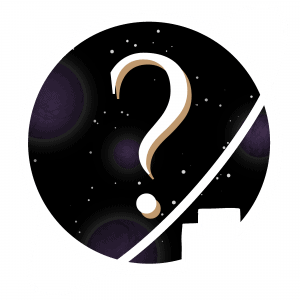
Curator Question: Do you prefer Fantasy or Sci-Fi?
Our curators discuss which genre they like best: fantasy or science fiction?

Review: Exhalation – Ted Chiang
A merchant in ancient Baghdad discovers a time portal which allows him to revisit his past mistakes. A former zookeeper takes a job raising digital lifeforms. A new technology enables people to communicate with alternate versions of themselves, and to see how their life would have turned out if they had made different choices.

Collected: Fantasy High by Dimension 20
COLLECTION: It’s the first day of school at Agueforth Adventuring academy, a school for teen fantasy hero’s. Will our intrepid adventurers make it through the year?


Review: Within the Wires – Night Vale Presents
Every season of Within the Wires tells a stand-alone story within an alternate history of the 20th century where the nuclear family is no more.

Review: You feel it just below the ribs – Jeffrey Cranor & Janina Matthewson
Review of You feel it just below the ribs. A book in the same universe as audio drama podcast Within the Wires.









